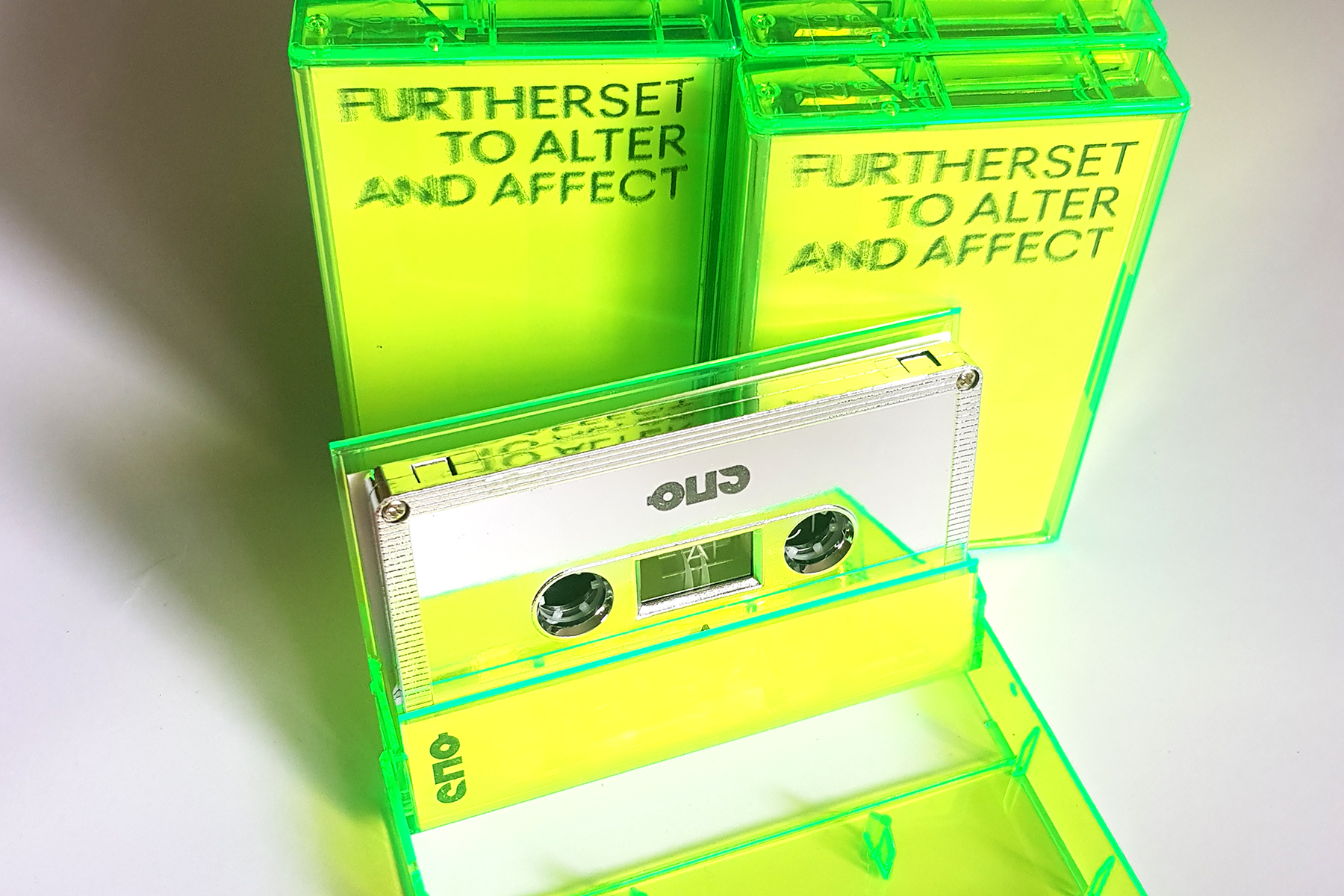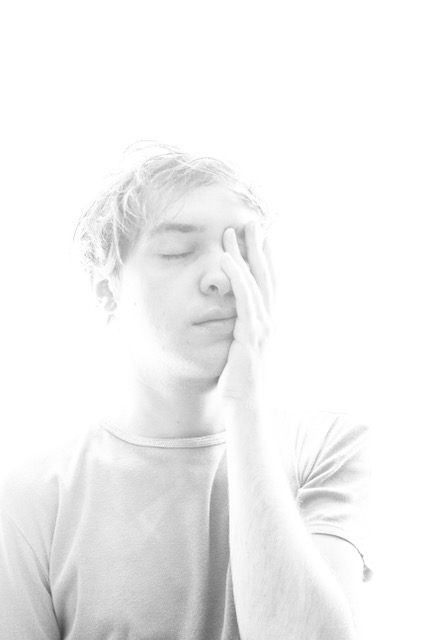The release of To Alter And Affect and the fact that Furtherset is part of a so-called “Italian New Wave,” a brand coined by Turin’s Club To Club festival, is what we’ve talked about with Pandolfi ahead of the release of his tape this coming Friday via -OUS.
Remo Bitzi Can you tell us a bit more about the tape—e.g. what is it that you’d like To Alter And Affect?
Tommaso Pandolfi The music was made where I live and study, in Urbino, and mixed in Lecce with Peppe Petrelli. It was a turbulent time, and that’s the meaning of the title—changes between people, and inside oneself, both positively and negatively. It has also been quite some time since I made music without any words…
There’s no explicit meaning to explain—or nothing at all to explain, I hope—just a sonic flux where people could find what they want. In my eyes, it’s not necessary to talk about the meaning and the context of the making, it’s better to listen and experience the thing. In the end, I’d like to make music that is not tied to textual/written explications.
The context, however, was somehow sad; but the music was made to transcend that moment, changing it into something better. I think that there’s a strong sense of trying to reshape myself and create new emotions.
RB To me, noise and euphoria seem to be two cornerstone of the record—would you agree?
TP I don’t like when people say that I make “noise music.” Noise is an element in my work, that’s a fact—but it’s only one element of many. Noise is something that makes myself free, as a matter of energy. Also, there’s more noise in the live environment than in the studio productions. In the studio, everything is controlled. But when playing live, a lot of things are out of control. When you rehearse you make rules, then you try to follow your own instructions. When playing live, all of those rules collapse and things slip out of control; sometimes in a good way, and sometimes in a bad way. That’s what I like about playing live. And to me, the reason behind things going out of control is euphoria. I really like hardcore—for example Nordcore G.M.B.H.—the energy, dancing to it, the sense of euphoria and forgetting everything else while listening to it.
RB There’s much talk about a/the “Italian New Wave.” Can you tell us more about it?
TP The Italian New Wave is a format by Club To Club Festival that promotes the new Italian music scene worldwide with showcases and initiatives, featuring a roster of artists selected by the festival.
We don’t have a scene, but an attitude towards contamination. To say it with the words of Nico Vascellari: “It was a collision of a variety of scenes; artists getting together in a weird and inspiring way.”
RB There has been in fact a lot of exciting music coming out of Italy in recent years. What do you think is the reason for that?
TP We have people with good brains making good music—that’s it. My favorites are my friends Chevel, Bienoise, Donato Epiro, Ninos du Brasil, and the people of Haunter Records. We also have very good DJs—and the best one is Filippo Moia.
RB Why, do you think, does it make sense to organize musicians in nations, while (musical) ideas rather are exchanged globally in today’s world?
TP Making music, I don’t think of myself as an “Italian musician.” Of course I listen to a lot of music by Italian artists and I’m influenced by them—Bienoise, for example, who’s a dear friend of mine and kind of a mentor, too. But talking about my work, how I behave making music, there’s no evidence of a connection to an Italian identity. A lot of musicians and artists investigate the problems of identity (related to gender, nation or cultural perspectives) in their practice, and that’s something that is really important and necessary nowadays.
Furtherset’s To Alter And Affect is out via -OUS on April 27, 2018 as a limited edition of tapes and digitally. You might also want to check out Fledermelder’s The Sound Of Harmony, that was released as a 7” flexidisc in zwiekommasieben #14.

